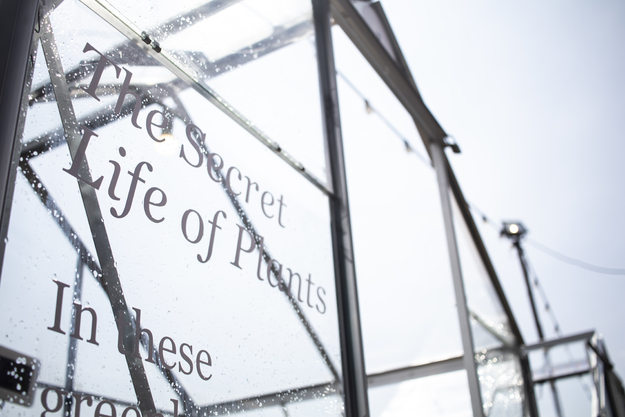Natural surroundings have a big impact on the energy and well-being of different organisms. To explore possible hidden lives of plants, artist Pei-Yin Ling teamed up with Sieta van Horck to conduct two experiments. In three different greenhouses they measure the secret life of plants: how do they react to different viruses, and how is their growth affected by either Indian Vedic Chants or Western Rock Music?
Plant Resonance
Research originating from 1970, proved that harmonic sound waves affect the growth, flowering, fruiting and seed-yields of plants. In these greenhouses, the effects of three different musical conditions on the energy production of plants are measured and compared. Do plants grow better when listening to Classical Indian Music, or do they prefer 80's rock? One greenhouse functions as a control group to compare the results of both musical conditions.
Virophilia
What is also growing in all the greenhouses are the agricultural plants that are separated in two groups: virus infected or non-infected. Mainstream virological research has always been observing the harms that viruses brings to the host. However, recent researches have discovered there are some plant viruses that actually brings advantage to their hosts. Here we are observing wether the infected and non-infected plants will have different reactions to different environment as well.
Pei-Yin Ling and Sieta van Horck
Pei-Ying Lin's main focus is the combination of science and human society through artistic methods. She is particularly interested in building a common discussion ground for different cultural perspective regarding elements that construct our individual perception of the world. Sieta van Horck is a researcher and artist currently graduating from her MSc Media Technology. Using nature as an organic and intuitive interface for digital interaction, her work is characterised by exploring new interaction patterns with the natural environment.




